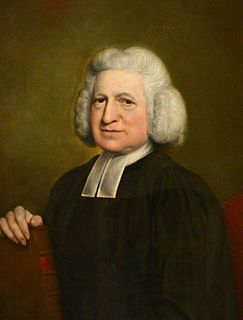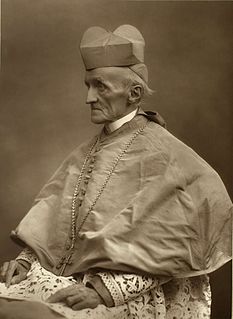A Quote by Scot McKnight
... the Eucharist profoundly enables the grace of God to be received with all its glories and blessings.
Quote Topics
Related Quotes
John declared that "Christ received not of the fulness at the first," but that he "continued from grace to grace until he received a fulnesss and thus he was called the Son of God, because he received not of the fulness at the first." Thus is it with us all. We must work out our salvation and exaltation by coming to this earth. Man must be born into mortality and live and die that he may continue in his progress toward eternal life and exaltation.
It is grace at the beginning, and grace at the end. So that when you and I come to lie upon our death beds, the one thing that should comfort and help and strengthen us there is the thing that helped us in the beginning. Not what we have been, not what we have done, but the Grace of God in Jesus Christ our Lord. The Christian life starts with grace, it must continue with grace, it ends with grace. Grace wondrous grace. By the grace of God I am what I am. Yet not I, but the Grace of God which was with me.
The law demands good works and uses its terror--rejection, shame, fear of punishment, unanswered prayer, personal tragedy, etc.--as motivation. Here performance is a necessity to secure the blessings and avoid the curses. Grace, on the other hand, allows us to serve on a different basis--not from fear but on the basis of love and gratitude, from appreciation and gladness for blessings freely given and freely received.
We are profoundly grateful for the blessings bestowed upon us: the preservation of our freedom, so dearly bought and so highly prized; our opportunities for human welfare and happiness, so limitless in their scope; our material prosperity, so far surpassing that of earlier years; and our private spiritual blessings, so deeply cherished by all. For these we offer fervent thanks to God.
But look at the men who have those perverted notions about the grace of Jesus Christ which has come down to us, and see how contrary to the mind of God they are. . . . They even abstain from the Eucharist and from the public prayers, because they will not admit that the Eucharist is the self-same body of our Savior Jesus Christ which flesh suffered for our sins, and which the Father of His goodness raised up again.
We live in a church culture that has a dangerous tendency to disconnect the grace of God from the glory of God. Our hearts resonate with the idea of enjoying God's grace. We bask in sermons, conferences, and books that exalt a grace centering on us. And while the wonder of grace is worthy of our attention, if that grace is disconnected from its purpose, the sad result is a self-centered Christianity that bypasses the heart of God.
From time to time, ask yourself these questions: "Am I ready to meet my Maker?" "Am I worthy of all the blessings He has in store for His faithful children?" "Have I received my endowment and sealing ordinances of the temple?" "Have I remained faithful to my covenants?" "Have I qualified for the greatest of all God's blessings-the blessing of eternal life."
It consists in a watchful, minute attention to the particulars of our state, and to the multitude of God's gifts, taken one by one. It fills us with a consciousness that God loves and cares for us, even to the least event and smallest need of life; and that we actually have received, and do now possess as our own, gifts which come direct from God. It is a blessed thought, that from our childhood God has been laying His fatherly hands upon us, and always in benediction; that even the strokes of his hands are blessings, and among the chiefest we have ever received.
I would advise you to get all of your blessings written and preserve them...I do feel to enjoin it upon you to make a record of every official act of your life. If you baptize, confirm, ordain, or bless any person or administer to the sick, write an account of it. If every man will do this, the Church can write a correct account of it...if the power and blessings of God are made manifest in your preservation from danger...you should make a record of it. Keep an account of the dealings of God with you daily. I have written all the blessings I have received, and I would not take gold for them.





































